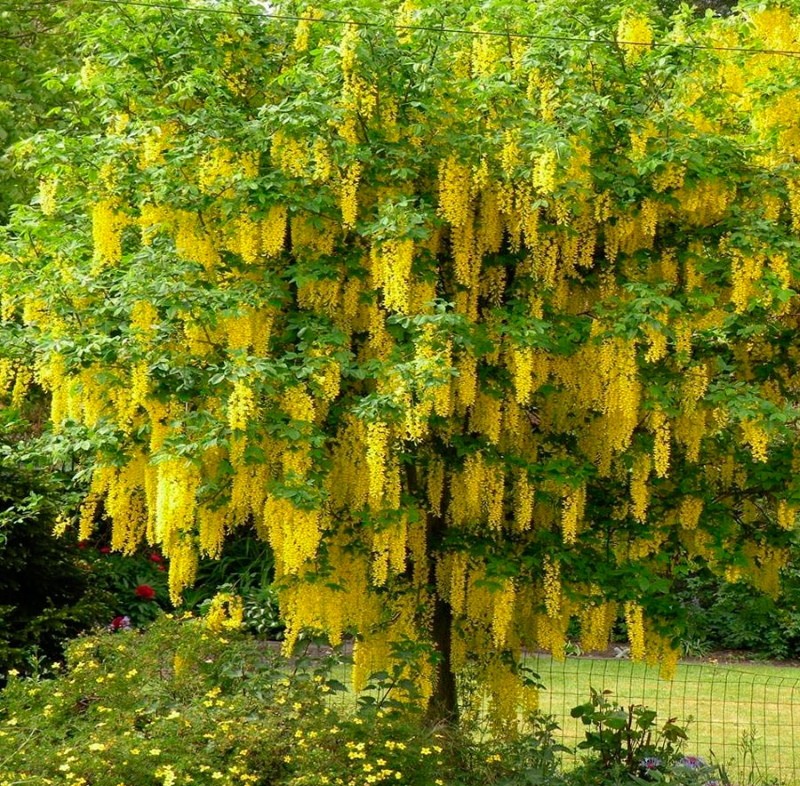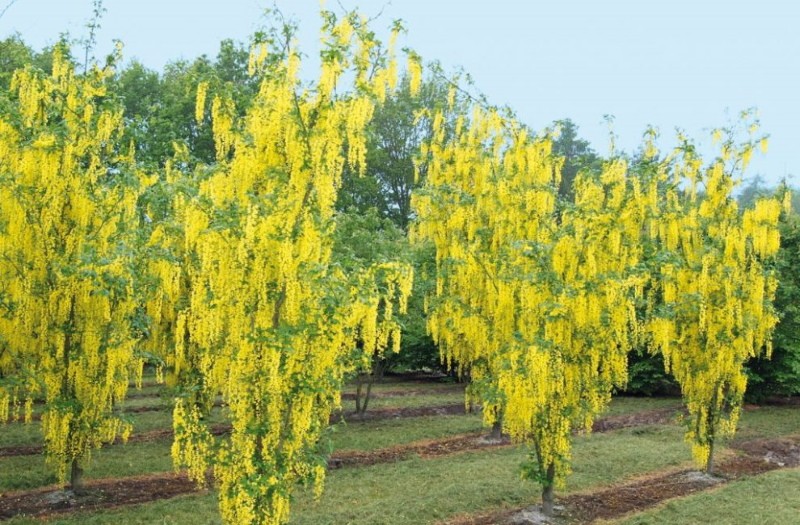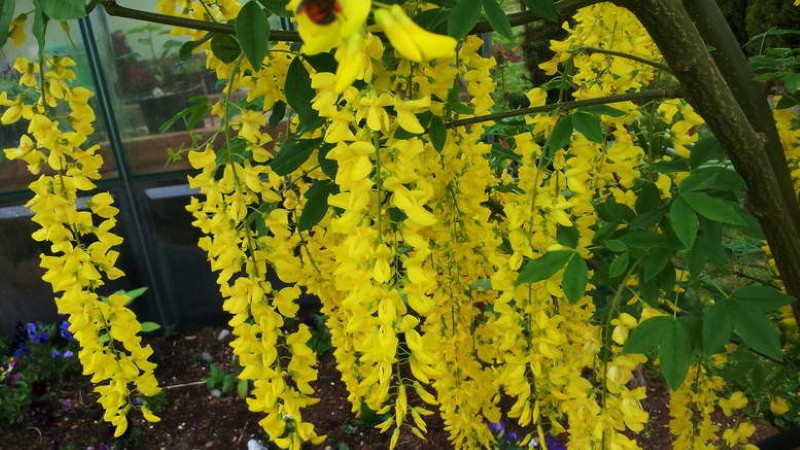Bobovnik - planting and care, photo of the most charming "golden rain"
 It stands for the whole month of May, adorned with magnificent long tassels with many golden flowers. This is a gardener's dream - an unsurpassed bean, planting and care, a photo of which is of interest to many. It gained its popularity precisely because of its gorgeous flowering. Such an abundance of bright inflorescences can be the envy of other garden crops. But growing leguminous plants, and even more so without shelter, will not work everywhere, because most of its species do not tolerate frost. What is the secret of abundant flowering and how to care for such a tree in the garden?
It stands for the whole month of May, adorned with magnificent long tassels with many golden flowers. This is a gardener's dream - an unsurpassed bean, planting and care, a photo of which is of interest to many. It gained its popularity precisely because of its gorgeous flowering. Such an abundance of bright inflorescences can be the envy of other garden crops. But growing leguminous plants, and even more so without shelter, will not work everywhere, because most of its species do not tolerate frost. What is the secret of abundant flowering and how to care for such a tree in the garden?
Brief botanical characteristics of the bean

Depending on the species, the height of the bean tree can be from 3 to 7 m, and its branches are erect or drooping. In most species, trifoliate ovoid leaves are pubescent on the back. Leguminous plants bloom closer to the month of May and blooms for about 4 weeks. Small yellow flowers are collected in racemose inflorescences with a length of 15 cm.There are varieties, the brushes of which reach a length of up to 0.5 m.
During flowering, the bean plant is so covered with inflorescences that leaves and even branches are not visible under them. For this it is popularly called "golden rain".
Bobovnik - planting and care, photo of the plant
 Most often, legume is grown in regions with warm climates. Although some of its species can tolerate frosts down to minus 25 ° C. However, wherever it grows, one condition remains unchanged - the landing site should be spacious and well lit. It is undesirable to plant leguminous plants close to tall crops so that they do not shade it.
Most often, legume is grown in regions with warm climates. Although some of its species can tolerate frosts down to minus 25 ° C. However, wherever it grows, one condition remains unchanged - the landing site should be spacious and well lit. It is undesirable to plant leguminous plants close to tall crops so that they do not shade it.
For planting, it is better to purchase small seedlings with a closed root system. They can be planted in early autumn or spring, if we are talking about the southern strip. In cooler climates, bean plants are planted only in spring.
How to care for a bean in the garden
 In general, caring for the "golden rain" is not difficult, and any gardener can cope with it. If you immediately plant a seedling in a cozy and lighted area, then you will only need to periodically support its development with such activities:
In general, caring for the "golden rain" is not difficult, and any gardener can cope with it. If you immediately plant a seedling in a cozy and lighted area, then you will only need to periodically support its development with such activities:
- Water often, but only young seedlings. Adult plants tolerate drought well and only need watering when there is no rain for too long.
- Feed twice a season: in the spring - compost, in the fall - potassium-phosphorus fertilizers.
- Cover young plants for the winter, especially in cool climates. In the south, adult bean plants grow without shelter. But, for example, in the Moscow region, they can suffer from winter frosts and spring frosts, especially heat-loving varieties. Therefore, it is recommended to build a protective shelter for them in the fall.
The leguminous plant is propagated by seeds, cuttings or layering.The latter option is used for bush forms that give lateral shoots.